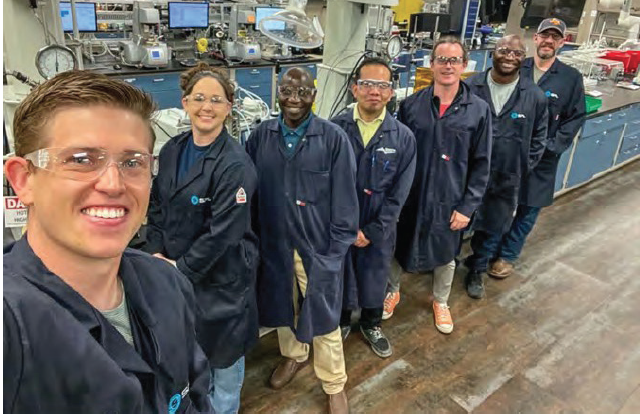SPL Labs ASTM D6079 Lubricity Test
Overview of the Test:
The ASTM D6079 test performed by SPL Labs focused on evaluating the lubricity of diesel fuel, a crucial characteristic impacting engine wear and efficiency. This test is particularly important for understanding how DF5 affects the lubrication properties of diesel fuel.


Testing & findings
Test Procedure and Parameters:
The test compared two samples: standard Ultra Low Sulfur Diesel (ULSD) and ULSD treated with DF5. The High-Frequency Reciprocating Rig (HFRR) method was used to measure wear scar diameters, a standard approach to assessing the lubricity of diesel fuels.
Key Findings:
- Enhanced Lubricity: The ULSD sample treated with DF5 showed a significant improvement in lubricity. The average wear scar diameter was notably smaller in the treated sample compared to the untreated ULSD.
- Quantitative Improvement: The results indicated approximately a 16% improvement in lubricity for the DF5-treated diesel.
Implications for Diesel Applications:
- Improved lubricity directly translates to reduced wear and tear on critical engine components, particularly fuel injectors and pumps. This is vital for the longevity and efficient operation of engines from Cummins, Detroit Diesel, and Caterpillar.
- Enhanced lubrication properties of diesel fuel can lead to smoother engine operation and potentially lower maintenance costs over time.
Conclusion:
SPL Labs’ ASTM D6079 Lubricity Test provides convincing evidence that DF5 substantially enhances the lubricity of diesel fuel. From fleet managers to private operators, this translates into a practical solution for extending the life of engine components, improving overall engine health and reducing maintenance and downtime costs.





